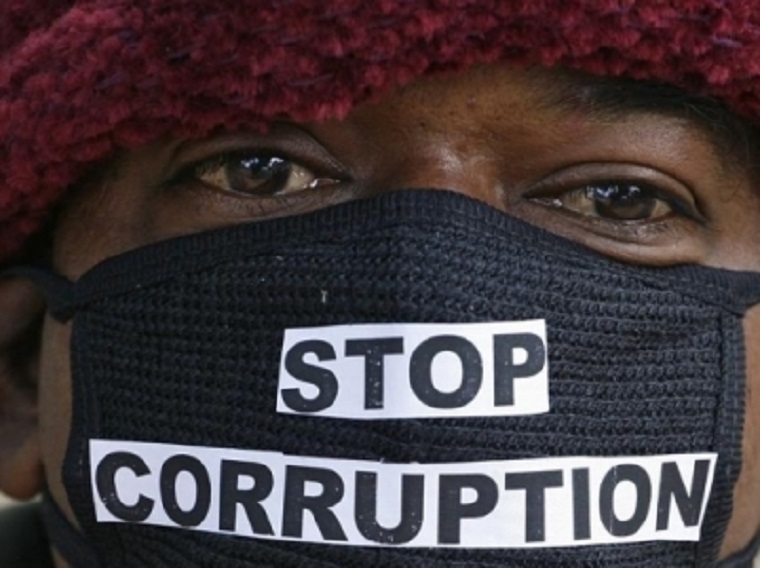 Britain today said it is providing aid to those affected by Cyclone Idai in Zimbabwe and it has this year committed aid worth £84 million but none of the money goes through the Zimbabwe government.
Britain today said it is providing aid to those affected by Cyclone Idai in Zimbabwe and it has this year committed aid worth £84 million but none of the money goes through the Zimbabwe government.
This was said by Minister of State (Foreign and Commonwealth Office) Harriett Baldwin in response to a question about what Britain was doing about Cyclone Idai which hit Southern Africa last week leaving a trail of destruction.
Hundreds of people were killed in Mozambique, Malawi and Zimbabwe but the figures are still unclear with more than 300 reported to have died in Mozambique while the figure for Zimbabwe is reported to be over 100 and could reach 500.
Baldwin was asked by Neil Parish what help Britain was going to give to Zimbabwe because the country was weak due to corruption, bad governance and lack of democracy.
“We have always been a steadfast friend of the people of Zimbabwe,” she replied. “This year alone, we will have put some £84 million-worth of programming through the Department for International Development—none of which money, I must emphasise, goes through the Government of Zimbabwe but is designed to help the most vulnerable people with education, access to healthcare and some of the agricultural resilience work that I have alluded to. My hon. Friend is absolutely right to put on record the steadfast friendship between the people of the UK and the people of Zimbabwe, Malawi and Mozambique.”
Zimbabwe President Emmerson Mnangagwa said at his inauguration in November 2017 that he was committed to eradicating corruption but he has so far failed dismally to curb the menace because some of his top lieutenants and family members are reported to be deeply entrenched into it.
Q &A
Neil Parish (Tiverton and Honiton) (Con): Our heartfelt sympathy goes out to the people of Mozambique, Malawi and Zimbabwe. As has been said, this is not only about feeding and saving people now; it is also about feeding them into the future, and I am sure that the British farming community can help to get cattle and other things back into the region. One particular point that I want to raise with the Minister is about Zimbabwe, which is naturally suspended from the Commonwealth because of corruption, bad governance and a lack of democracy. It is quite right to suspend the country, but it is not the fault of the Zimbabwean people that they have such a corrupt Government. What more help can we give Zimbabwe, given that the country is very weak due to its lack of good governance and democracy?
Harriett Baldwin: We have always been a steadfast friend of the people of Zimbabwe. This year alone, we will have put some £84 million-worth of programming through the Department for International Development—none of which money, I must emphasise, goes through the Government of Zimbabwe but is designed to help the most vulnerable people with education, access to healthcare and some of the agricultural resilience work that I have alluded to. My hon. Friend is absolutely right to put on record the steadfast friendship between the people of the UK and the people of Zimbabwe, Malawi and Mozambique.
Kate Hoey (Vauxhall) (Lab):The Minister will know that eastern Zimbabwe, particularly around Chimanimani, has been completely devastated, with roads closed and nobody really able to get in unless by helicopter—and there are of course the special circumstances of Zimbabwe already mentioned by the hon. Member for Tiverton and Honiton (Neil Parish). Will the Minister add just a little bit more on what our ambassador in Zimbabwe is doing and how we are making sure that we are really going to get the aid to the people who are going to need it most?
Harriett Baldwin: The hon. Lady, who chairs the all-party parliamentary group on Zimbabwe, will want to know that we have been at the forefront of trying to work with our partners to assess the scale of the need. The port of Beira is not just the port for a large part of Mozambique but also the port that is most used by Zimbabwe and Malawi for food imports and exports, so that is, in addition, a particular vulnerability. I understand from the early assessments that reports from eastern Zimbabwe suggest that there has been a severe degradation of the infrastructure as well, and it is very difficult to access all the afflicted populations. We cannot over-emphasise how difficult it is for us to be able to reach people. The pre-deployed kits have reached the airport at Beira, but at the moment many roads out of Beira are closed, and that will also affect eastern Zimbabwe’s response. We are at the forefront of working with partners—for example, UNICEF—in eastern Zimbabwe, and that will need to inform, after the rain has stopped, our ability to respond to some of the lasting damage there.
(312 VIEWS)


